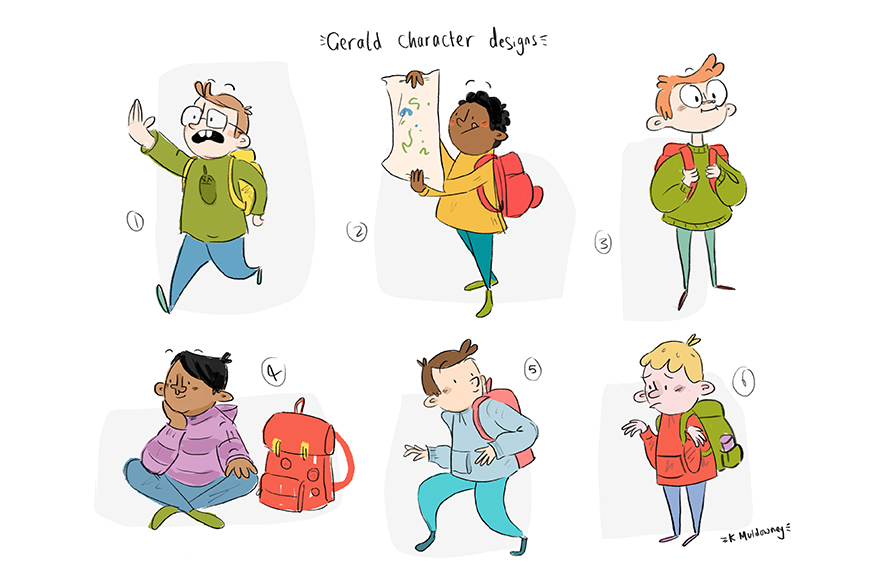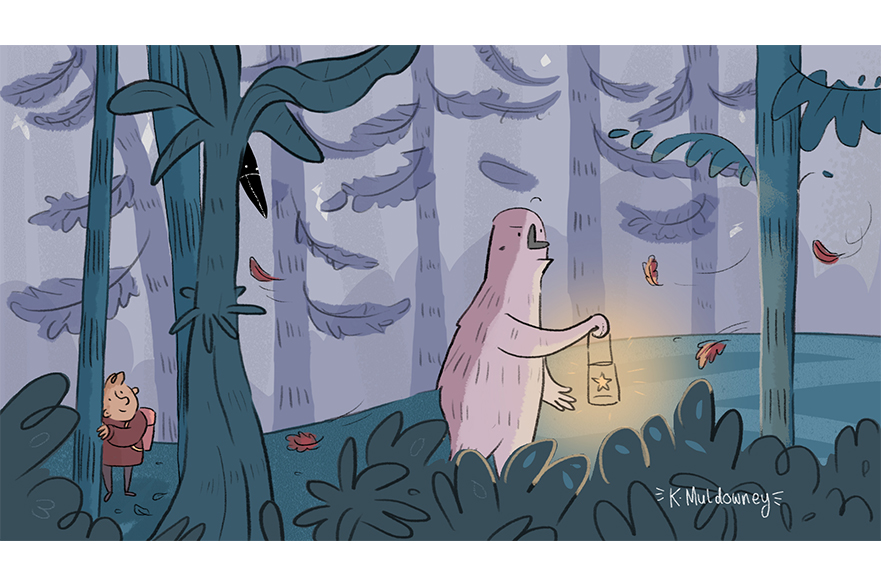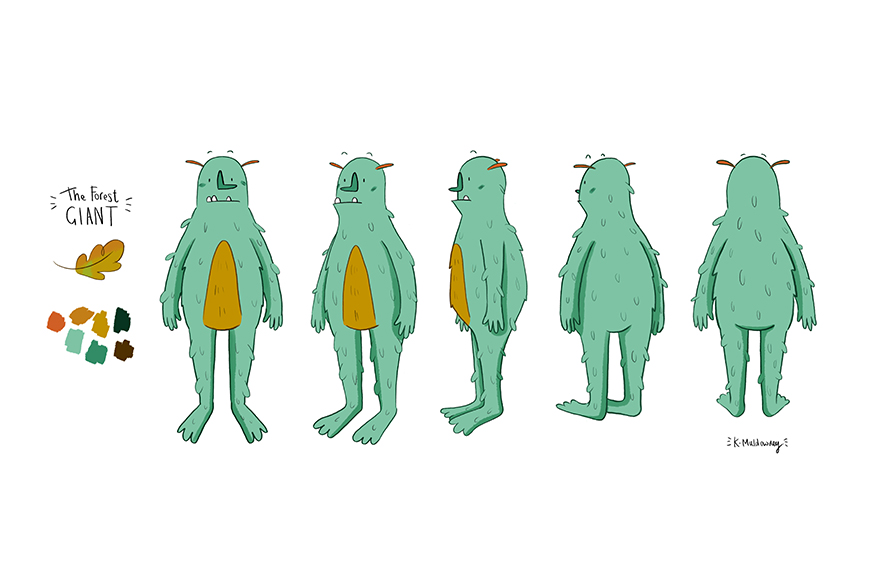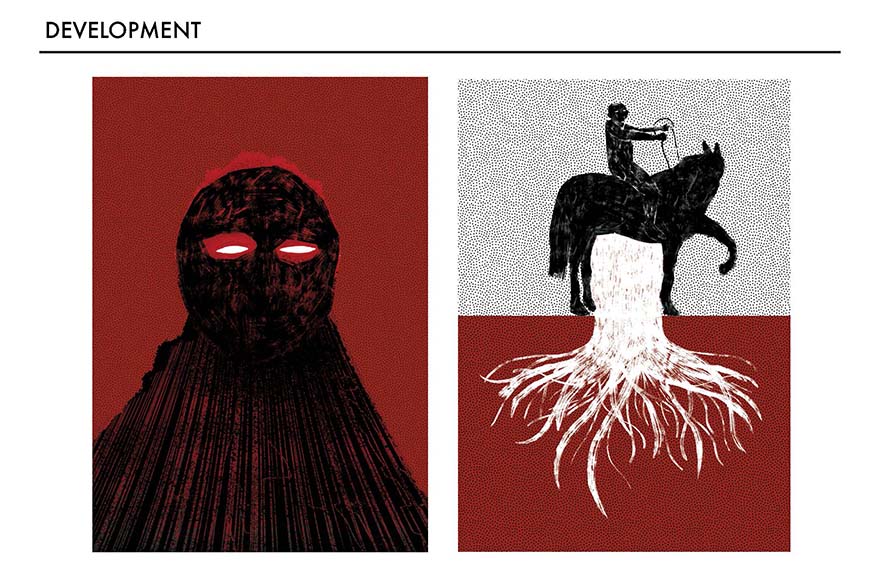Animation MA
About this course
MA Animation is a taught MA, with equal value placed on developing your authorial voice, unique vision and creative originality, alongside your advanced technical skills and professional practice development
Our course will provide you with the opportunity to develop specialist skills and knowledge, through research and focused study, to enhance your understanding of the subject area and support your future employment goals.
The course will allow you to develop a distinct visual language to enhance animated storytelling for a specific target audience. You will also get the opportunity to evidence, articulate and evaluate your own creative process when responding to creative challenges and briefs.
Optional workshops to support your skills development and understanding of software, production processes and practice, are offered throughout Terms 1 and 2. Workshops cover a breadth of subjects, including; Animating in 3D, 2D and Stop-motion, 3D Modelling, sculpting, texturing and lighting, 2D character design, concept art and storyboarding, there are also life drawing sessions available.
Throughout the course, you will have the opportunity to both work individually, and also as part of a wider creative group. There is both a strong emphasis on self-directed study and independent learning, delivering the opportunity for you to express your own interests within the course – and also the course provides the basis to demonstrate qualities, attitudes and behaviours of working creatively as part of a creative collective.
NTU is ranked 8th in the United Kingdom for Art & Design by QS World University Rankings. (QS World University Rankings 2023)
-
Develop a project tailored to your own personal interests and career aspirations.
-
Visit animation festivals in the UK and Europe. You will also attend lectures held by industry professionals from leading animation studios.
-
Opt for an additional research module if you’re thinking of progressing to PhD or Professional Doctorate study
-
Work with fellow students, practitioners and academic staff from different cultures and backgrounds.
20
What you’ll study
The main focus of the course will be on the exploration and refinement of your skills. Develop content specific to your research area, as well as attending contextual lectures in which you’ll investigate global animation history, theory and practice. This course will prepare you for a career in a commercial production studio, in games production or feature animation. Additionally, you may choose to work in visual effects production or as an independent filmmaker.
Term 1
Culture and Collaboration: Required
(20 Credits)
On this module, you will develop an advanced level of understanding of the wider cultural context for current and future work. You will gain skills in research, analysis, idea generation, critical thinking, communication, and presentation. During the module, you will collaborate across the school on a negotiated theme relevant to current debates which relate to art & design theory and practice to produce a selected outcome contributing to a collective festival of ideas.
Summative Assessment end of Term 1: Negotiated output - a contribution to a Festival of Ideas
Animation Aesthetics and Practice: Required
(40 Credits)
This module will develop an understanding of your own practice and how it is situated within the wider context of animation. You will explore visual and motion aesthetics and the synthesis of different artistic forms to inform your animation practice. This will position you in preparation for their major project.
Summative Assessment end of Term 1: A negotiated output – visual outcomes, a reflective statement
Term 2
Professional Futures: Optional
(20 credit points)
This optional module is offered to all students on our Visual Communications courses. This module aims to provide you with the space to explore and share ideas, future gazing professional opportunities in visual communications. You will collaborate with students from all subject areas in visual communications and will form cross-disciplinary debate and discussion in relation to employment, enterprise, and innovation.
Summative Assessment end of Term 2: Project/ Poster summarising findings
Advancing Research Design: Optional
(20 Credits)
This multi-disciplinary module provides an explorative platform for you to use as the basis for further research-based study or if you want to extend your knowledge of research methods and methodologies to enhance your future professional practice, or you are considering progression to PhD level study.
Summative Assessment end of Term 2: Negotiated written and visual output
Terms 2 and 3
Masters Personal Project: Required
(100 credit points)
This module will allow you to undertake a project to reflect your own voice demonstrating your creativity, ideas and develop technical skills in support of your professional practice, within a global context.
Summative Assessment end of Term 3: Negotiated output
We regularly review and update our course content based on student and employer feedback, ensuring that all of our courses remain current and relevant. This may result in changes to module content or module availability in future years.
Don’t just take our word for it, hear from our students themselves
Student Work
Video Gallery
How you're taught
Teaching and learning experiences will include:
- lectures
- tutorials
- seminars
- inductions
- workshops
- study visits
- e-learning
- self-directed research
- independent studio practice
Find out when our postgraduate term dates for the Nottingham School of Art & Design are. Please note that these are slightly different to other Schools within the University.
How you're assessed
Assessment is 100% by coursework. there is a Formative Assessment throughout the course with a Summative submission for each module.
Examples of assessed work are as follows:
- Visual or written outcomes from the module
- A verbal presentation that articulates and summarizes your work
- A written reflective
- Outcomes from experimentation and self-directed study
- Research and practice-informed reflective journal
- A professionally produced portfolio
- Professional development materials (e.g. an edited reel, CV, cover letter)
- The outcome from your personal project
Careers and employability
Career Prospects
The course promotes industry research and networking to establish relationships with relevant animation companies. Students will leave with a body of work that reflects their skills and currency to potential employers.
This course leads to a wide range of potential careers that include storyboard artist; character designer; environment and prop designer; pre-visualisation artist; CG modeller; 2D and 3D animator; stop-motion animator; and experimental animator.
You also have the opportunity to enter into a diverse industry including feature and televisual production, advertising, games production and independent production, through to more peripheral digital media industries such as architectural pre-visualisation.
Some graduates also use this course to support careers in teaching, lecturing and journalism, or to progress on to MPhil or PhD study.
Connections with Industry
You’ll be encouraged and supported to undertake internships and attend events held by the School’s Employability team and other organisations. You’ll also be encouraged to undertake research into animation production companies and associated industries.
You’ll benefit from talks given by visiting professionals, which will cover a wide range of creative and professional practice.
Prestigious guest lecturers may include the likes of:
- Nexus Studios
- Aardman Animation
- Finger Industries
- Jellyfish Pictures
- Astley Baker Studio
- Entertainment One
Additionally, you’ll have the opportunity to network with industry professionals during trips to both national and international animation festivals.
In the second and third term, there will be advice and support to help you prepare career materials, including editing your strongest visual work into a reel, compiling a CV and cover letter, interview practice, and producing an online portfolio resource (such as a website).
We’ll invite you to submit your work to be considered for exhibition at New Designers, a prestigious graduate design show in London, and other subject and student-run initiatives at the University and across Nottingham.
Showcase
Explore our showcase ‘We Are Creatives’ - celebrating the work of the Nottingham School of Art & Design students. You will find a sneak peak of some of our students’ work and gain a real insight into what it’s like to be part of the NTU creative community at wearecreativesntu.art
YouFirst – working with our Employability Team
Our friendly, experienced careers consultants will work closely with you at every stage of your career planning, providing personal support and advice you won't find in a book or on the internet. You can benefit from this at any time during your studies and up to three years after completing your course.
Re:search Re:imagined
To us, research is about more than writing papers and proposing new ideas. By daring to think differently, we’re disrupting the research landscape and finding the answers to the questions that really matter. From electronic textiles to the history of lace, we’re inspiring the brightest minds to rise up and find solutions to some of the most significant global challenges facing society.
Find out more: ntu.ac.uk/research
Campus and facilities
You’ll be based in the Waverley building – a beautifully restored listed building with real design heritage, and the original home of the Nottingham School of Art. Our City Campus is right in the heart of Nottingham city centre. You’ll also have access to specialist resources across the Nottingham School of Art & Design and wider University.
Explore all our facilities in the Nottingham School of Art & Design Facilities Hub.
Entry requirements
UK students
Academic entry requirements: 2.2 honours degree in a related subject.
Other requirements: a creative portfolio.
Additional requirements for UK students
There are no additional requirements for this course.
Other qualifications and experience
We welcome applications from students with non-standard qualifications and learning backgrounds and work experience. We consider credit transfer, vocational and professional qualifications, and any work or life experience you may have.
You can view our Recognition of Prior Learning and Credit Transfer Policy which outlines the process and options available, such as recognising experiential learning and credit transfer.
Getting in touch
If you need more help or information, get in touch through our enquiry form.
International students
Academic entry requirements: 2.2 honours degree in a related subject. We accept equivalent qualifications from all over the world. Please check your international entry requirements by country.
Other requirements: a creative portfolio.
English language requirements: See our English language requirements page for requirements for your subject and information on alternative tests and Pre-sessional English.
Additional requirements for international students
There are no additional requirements for this course.
English language requirements
View our English language requirements for all courses, including alternative English language tests and country qualifications accepted by the University.
If you need help achieving the language requirements, we offer a Pre-Sessional English for Academic Purposes course on our City campus which is an intensive preparation course for academic study at NTU.
Other qualifications and experience
We welcome applications from students with non-standard qualifications and learning backgrounds and work experience. We consider credit transfer, vocational and professional qualifications, and any work or life experience you may have.
You can view our Recognition of Prior Learning and Credit Transfer Policy which outlines the process and options available, such as recognising experiential learning and credit transfer.
Sign up for emails
Sign up to receive regular emails from the International Office. You'll hear about our news, scholarships and any upcoming events in your country with our expert regional teams.
Getting in touch
If you need advice about studying at NTU as an international student or how to apply, our international webpages are a great place to start. If you have any questions about your study options, your international qualifications, experience, grades or other results, please get in touch through our enquiry form. Our international teams are highly experienced in answering queries from students all over the world.
Policies
We strive to make our admissions procedures as fair and clear as possible. To find out more about how we make offers, visit our admissions policies page.












